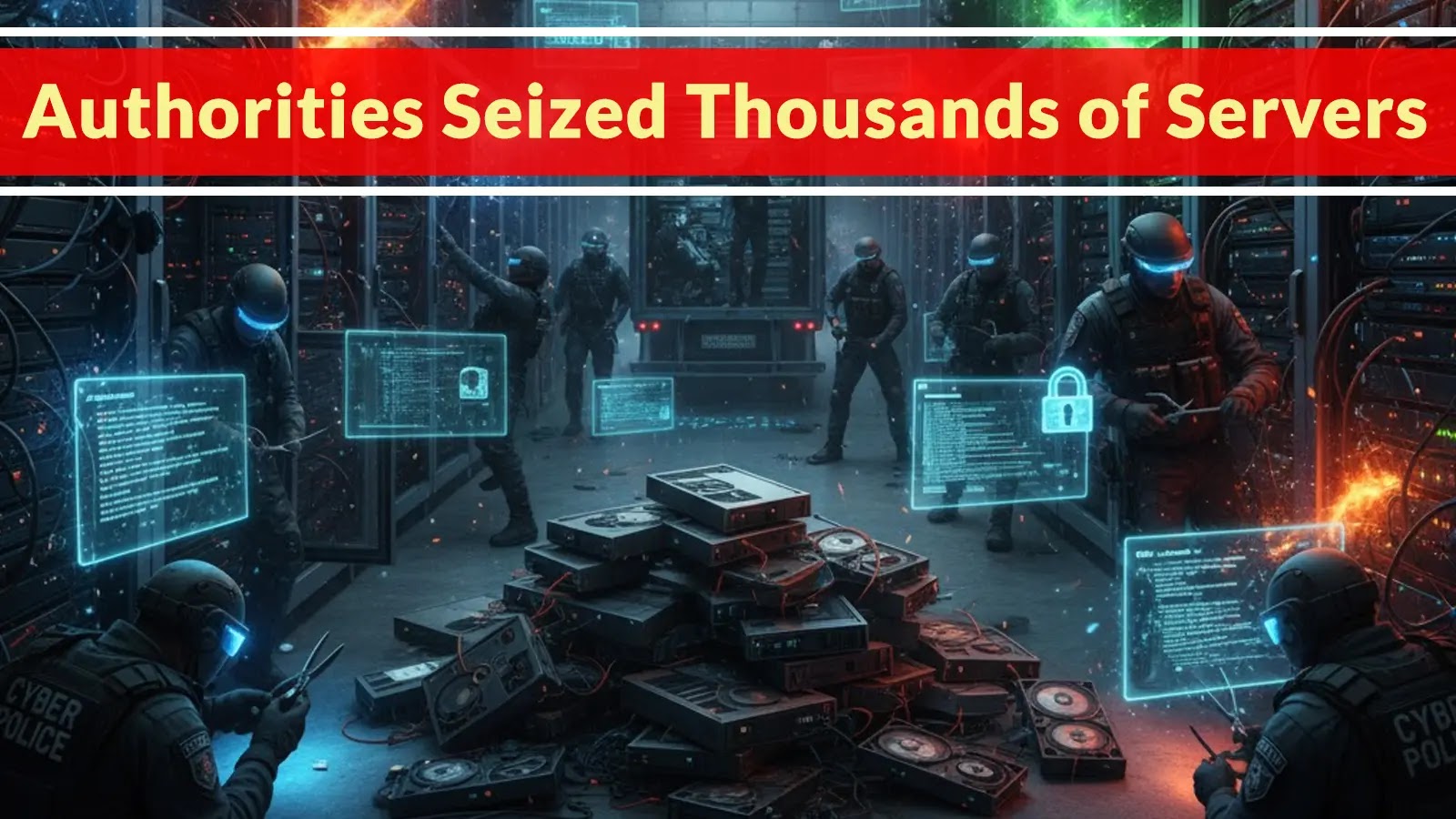
Authorities Seized Thousands of Servers from Rogue Hosting Company Used to Fuel Cyberattacks
In a significant win against cybercrime, law enforcement agencies in the Netherlands have successfully dismantled a substantial infrastructure used by a rogue hosting provider to facilitate a myriad of illegal online activities. This operation, detailed in a recent report, highlights the ongoing battle against malicious actors who exploit legitimate services for illicit gain. The seizure of thousands of servers underscores the pervasive threat posed by these underground operations and the critical importance of international cooperation in disrupting their networks.
The Anatomy of a Cyberattack Infrastructure Takedown
On November 12, 2025, a meticulously planned operation by the East Netherlands cybercrime team culminated in a major blow to the cybercriminal underworld. Authorities successfully seized approximately 250 physical servers. These critical pieces of hardware were strategically located within data centers across the Dutch cities of The Hague and Zoetermeer. What makes this operation particularly impactful is that these physical servers were not merely storage devices; they were the backbone for thousands of virtual servers, each actively being used to fuel various cyberattacks and criminal enterprises.
This type of infrastructure provides an essential layer of anonymity and resilience for cybercriminals. By utilizing virtual servers hosted by a seemingly legitimate provider, bad actors can obscure their true identities and physical locations, making tracing and attribution significantly more challenging for law enforcement and cybersecurity professionals. The sheer scale of this particular seizure, with thousands of virtual machines taken offline, represents one of the largest disruptions of its kind.
The Role of Rogue Hosting in Cybercrime
Rogue hosting providers are a critical enabler of modern cybercrime. Unlike legitimate hosting services that enforce strict terms of service and cooperate with law enforcement, these unscrupulous providers intentionally or negligently host content and services that are known to be illegal. Their client base often includes:
- Phishing Gangs: Hosting fake login pages and malicious websites designed to steal credentials.
- Malware Operators: Distributing ransomware, Trojans, and other malicious software.
- Command and Control (C2) Servers: Managing botnets and orchestrating large-scale cyberattacks.
- Spammers: Sending unsolicited and often malicious emails.
- Fraudsters: Hosting fraudulent e-commerce sites or identity theft operations.
The anonymity and lack of accountability offered by these services make them attractive to criminals seeking to operate with impunity. This takedown serves as a stark reminder that the digital infrastructure supporting cybercrime is tangible and can be targeted and dismantled.
Broader Implications for Cybersecurity
The successful disruption of this rogue hosting operation has several significant implications for the broader cybersecurity landscape:
- Reduced Attack Surface: Taking down thousands of virtual servers directly reduces the available infrastructure for cyberattacks, temporarily diminishing the capabilities of various criminal groups.
- Intelligence Gathering: Seized servers often contain invaluable forensic data, including logs, attacker tools, and communication records. This intelligence can lead to further investigations, arrests, and the identification of new attack methodologies.
- Deterrence: Such high-profile operations send a strong message to other rogue hosting providers and cybercriminals, signaling that their activities are not beyond the reach of the law.
- Enhanced Collaboration: These large-scale operations often involve international collaboration between law enforcement agencies, cybersecurity firms, and intelligence organizations, strengthening the global response to cybercrime.
While this is a significant victory, the dynamic nature of cybercrime means that new rogue services will inevitably emerge. Constant vigilance and proactive measures remain essential.
Remediation Actions for Organizations
While this particular operation targeted the infrastructure of criminals, organizations can take proactive steps to protect themselves from the types of attacks facilitated by such rogue hosting:
- Implement Robust Endpoint Detection and Response (EDR): EDR solutions can detect and respond to malicious activities originating from compromised servers, even if the attack source is obscure.
- Maintain Strong Email Security: Advanced email filters, DMARC, DKIM, and SPF records help protect against phishing and spam originating from illegitimate servers.
- Regularly Update and Patch Systems: Many cyberattacks exploit known vulnerabilities. For instance, ensuring systems are patched against issues like a hypothetical CVE-202X-XXXXX (link to CVE database) can prevent significant breaches.
- Conduct Regular Security Audits and Penetration Testing: Proactively identify weaknesses in your own infrastructure before attackers can exploit them.
- Educate Employees: Human error often serves as a gateway for cyberattacks. Training employees to recognize phishing attempts and suspicious links is crucial.
- Utilize Threat Intelligence Feeds: Integrate reputable threat intelligence feeds to identify and block connections to known malicious IP addresses and domains, often associated with rogue hosting.
Conclusion
The successful seizure of thousands of servers from a rogue hosting company marks a critical milestone in the ongoing fight against cybercrime. This operation by Dutch authorities not only disrupted numerous active cyberattacks but also provided invaluable insights into the underground economy supporting malicious activities. For individuals and organizations alike, this event serves as a potent reminder of the persistent threats lurking online and the paramount importance of robust cybersecurity defenses and ongoing vigilance. The continuous efforts of law enforcement and cybersecurity professionals are essential in creating a safer digital environment for everyone.





